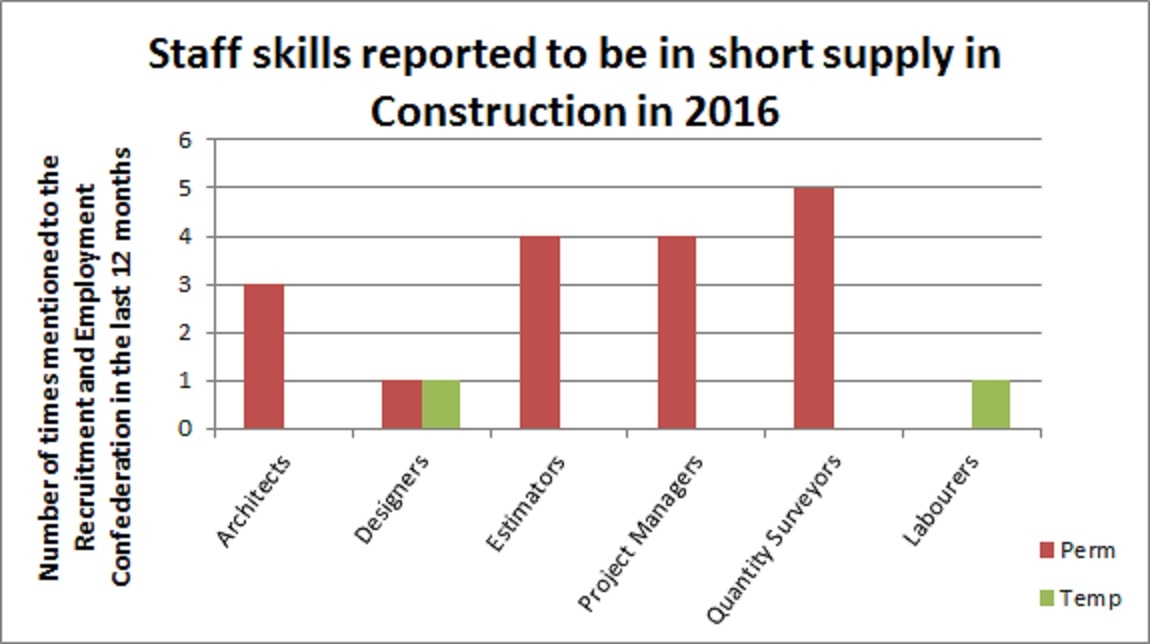UK construction: skills shortages, industry fragmentation and Brexit
The £130 billion ($160 billion) UK construction industry is facing a number of challenges. Not least among them are skills shortages and industry fragmentation.
The crisis of 2008-2009 led to a 13% decline in Britain’s construction output index, according to the Office for National Statistics. As a result of this, many skilled professionals left the industry, never to return.
And the problem hasn’t been resolved in the nine years that followed. In fact, an IHS Markit report sponsored by the Recruitment and Employment Confederation highlights engineering as one of the key permanent staff skills in short supply in late 2016.
But the problem is older than the crisis. With the UK lagging behind its European peers in terms of investment in certain types of large-scale infrastructure, and in terms of infrastructure investment as a whole, this means that many of the skills now needed for the country's flagship projects haven’t been developed over recent years and decades, or at least not at the scale that may be required.
For example, the last nuclear reactor built in the UK was Sizewell B, which was completed in 1966. As a result, home-grown nuclear engineers are scarce and often close to retirement. This also explains why building Hinkley Point C may have been difficult without an international sponsor. The same goes for tunnelling and high-speed rail skills, needed for the ongoing HS2 and Crossrail 2 projects.
Which means the UK construction industry is dependent on foreign expertise on a number of levels, ranging from the simplest day-to-day construction work to the most high-skilled, complex engineering abilities. And, given this dependence, the UK’s departure from the EU following last year’s referendum does not bode well.
Brexit
The immediate aftermath of the referendum brought with it expectations that the UK construction industry would see declining output in 2017 as uncertainty impacted new investment in construction. With pound sterling depreciating and costs of imported products and materials rising, numbers of new contract awards declined, said Noble Francis, economics director at the Construction Products Association (CPA). At the time, the CPA predicted total construction output would fall by 0.6% in 2017.
However, with activity holding up in the second half of 2016, 2017 now looks rosier, although expectations of slower growth have been pushed back to 2018. The CPA now expects total construction output to rise 0.3% in 2017, while 2018 may only see 0.2% growth, compared to previous expectations of a 1.2% increase. “The fall in contract awards is taking longer to feed through,” Francis explained.
The Royal Institution for Chartered Surveyors (RICS) also highlights Brexit and skills shortages as concerns. According to their most recent construction market survey, expectations for the sector are improving, but financial constraints and skills shortages are key impediments to growth.
Flagship projects
And the problem of skills shortages may impact some of the country’s largest projects. Last September, the Commons public accounts committee warned that the Department for Transport may struggle to source the skills required for all its transport infrastructure plans. “The extensive programme of infrastructure investment over the next few years is increasing the demand for engineering, project management and commercial skills across the industry. The Department and HS2 Ltd are competing with consulting and engineering firms, and other government projects for scarce skills, which represents a key challenge that will also impact on project costs,” the committee said.
And beyond skills, fragmentation of the industry is also a problem. With many of the UK’s construction firms not as large as their European counterparts, they often struggle to compete. Even the scattered array of professional institutions and organisations that support the industry points to fragmentation of the sector, noted one source.
Although consolidation may help create bigger, stronger companies, margins in the construction industry are wafer thin, which means investing in training staff is difficult. But there may be a way out.
“In order to deliver the UK’s planned infrastructure pipeline, capacity, productivity and skills in the sector must all be improved. Fixing the fragmentation of the industry and accelerating investing in technology will go a long way towards improving efficiency and effectiveness. This should drive higher productivity which will help improve current, unacceptably low margins and enable businesses to make the necessary investments in skills, training and improved ways of working,” said Malcolm Bairstow, head of global infrastructure and construction at EY.
*(chart courtesy of the Recruitment and Employment Confederation)
Request a Demo
Interested in IJGlobal? Request a demo to discuss a trial with a member of our team. Talk to the team to explore the value of our asset and transaction databases, our market-leading news, league tables and much more.


